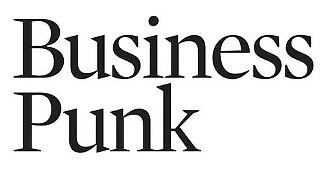Wednesday, December 29, 2021
Sustainable on business trips
Fintech enables flying with a clear conscience
By Katharina Boecker
The carbon footprint grows with every flight. But flights are often indispensable, especially for business trips. That is why the Fintech Pliant offers a credit card that is supposed to compensate for the CO2 emissions. The founders have already won over a TV lion with their idea.
Air travel has been confronting people with ecological awareness for some time: On the one hand, it’s always nice to explore new places in the world, get to know other people and expand your network face to face. On the other hand, the carbon footprint grows with every flight. Of course, this also applies to business trips. Although these have become rarer since the pandemic, they are still indispensable in some situations. One answer is: rail instead of plane, wherever possible.
In order to combine business travel and sustainability, the Berlin fintech Pliant may have an alternative: a company credit card that is supposed to compensate for the CO2 emissions from business trips. Pliant Earth is the name of the function launched in July 2021.
The Berlin credit card fintech has been offering Visa credit cards for companies with good credit ratings since May 2020. Credit cards that companies can use to pay for software and marketing tools, for example. Therefore, Pliant does not want to limit its entire business model to sustainability, but sees Earth as a relevant additional function – also as a distinction.
Entry into sustainability
The credit card is available in physical and digital form and can be used independently of the bank account. In addition, the card acceptance is maximum, and there is no need to top up in advance. “We want to make our credit card as easy to use as we know it from the private sector,” says Malte Rau.
Rau is the managing director and one of the two founders of Pliant. After having already worked in other fintechs, Rau is now pursuing two missions with Pliant, he says: “First: We want to offer an extremely flexible credit card that can be integrated into any setup. Second: We want companies to get started with their credit cards enable sustainability. ”
An example: If you book a domestic flight from Berlin to Munich, stay in a hotel for three nights and take a taxi, Pliant calculates the CO2 emissions for all transactions. The cashback is calculated using the price per ton in order to fully cover the compensation costs. “We rely on certified projects that are publicly visible,” says Rau.
Seven-digit sum from Carsten Maschmeyer
The story behind Pliant: Cards are arguably the easiest means of payment in the private sphere, but in business the process often takes a whole rat tail with it. This is exactly what should be prevented: “With Pliant, the financial processes in the company do not change, but we fit into the existing processes. This is a major difference to other providers,” says Rau.
This year the fintech was able to win various donors with its pitch. In August, TV lion Carsten Maschmeyer invested a seven-figure sum in Pliant. There is not that little competition on the German market. For example, the Berlin fintech Moss, which started as a credit card startup and now offers a platform for spending management – also beyond Germany. Pliant is not at this point yet, so far Rau and his team have been focusing on the German market.
“If you travel on business, use a credit card”
So what makes Pliant so attractive now? Rau says: “Our cashbacks make us extremely cheap and cost-efficient for our customers.” In addition, Pliant now offers a unique sustainable option. “There is money for bonus miles in the travel system, so there should also be money for sustainability,” says Rau.
If a company decides to use the credit card, it has to go through a digital registration process. The virtual card can then be used immediately. The cashback system works as follows: the merchant who accepts the card pays a fee. Part of this fee goes to the Visa partner network, one to Fintech, which in turn forwards part to the customer.
At Pliant Earth it’s the same game, only that the customer’s share finances the CO2 compensation. Rau is confident about the future of Pliant Earth: “I don’t think that travel will come back as it was before the pandemic. But if you travel on business, it will be with a credit card.”
The text first appeared at Business punk.
